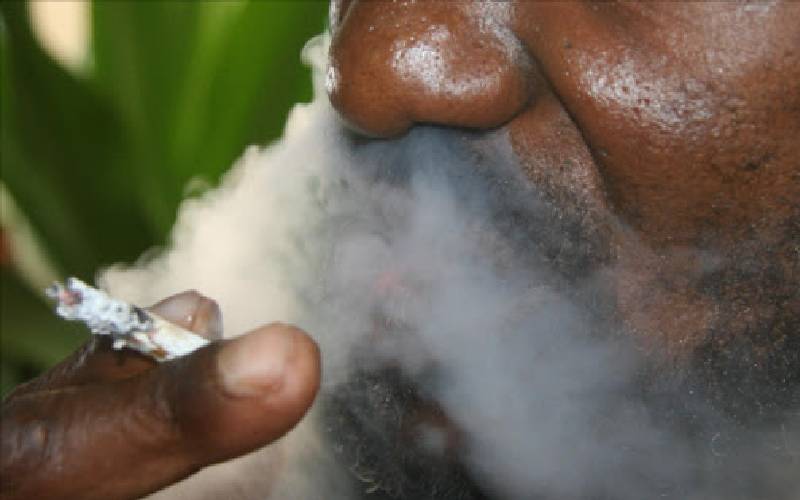
“No cameras please, I don’t want my face to be seen anywhere. I’ll talk to you about it but if you start shooting, we’re done!” James (not his real name) warns, even as The Standard team settles for an interview with him about his smoking habit. We comply and fold our equipment. But James does not mind us taking notes.
James excuses himself almost immediately, shuffling into his slippers and walks to a man standing by the gate of his apartment block. After pleasantries, James is handed a fist-sized package, which he quickly pockets.
 The Standard Group Plc is a multi-media organization with investments in media
platforms spanning newspaper print
operations, television, radio broadcasting, digital and online services. The
Standard Group is recognized as a
leading multi-media house in Kenya with a key influence in matters of national
and international interest.
The Standard Group Plc is a multi-media organization with investments in media
platforms spanning newspaper print
operations, television, radio broadcasting, digital and online services. The
Standard Group is recognized as a
leading multi-media house in Kenya with a key influence in matters of national
and international interest.











